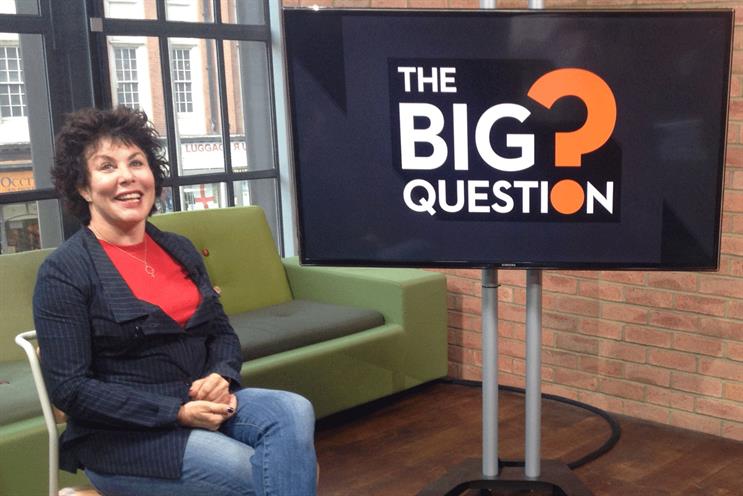
Speaking before London Live secured Ofcom’s permission to row back on promises it had made regarding original programming output, Auckland was characteristically matter of fact about the station's prospects.
He said: "We can link in homes and property [with the Evening Standard] that’s fine but it has to now stand on its own two feet as a business. We can’t keep propping it up.
"We haven’t got a magic wand. The guys have done a great job with what they have. It’s been a great experience for Lebedev.
"The easy call for me is to close it. It’s an expensive exercise and to be honest a lot of people say to me, ‘I can’t believe you’re going to carry on with this’.
"They have got some, small, traction. Have we got everything right yet? No. But once we have and if we’re still losing costs, then we close it. We’ll see where it takes us over the next six months or so."
Last week, London Live was released from its commitment to increase the number of hours of original, local programming by an hour a day in its second year (to total nine hours), and to 10 hours a day in its third year.
Such pledges by the broadcaster, which passed its first anniversary in March, now seem wildly optimistic as it struggles to attract audiences large enough to excite advertisers.
The local TV station was forced to cut 20 roles from its news and current affairs team, around a third of its staff, earlier this year.
Prior to launch, ESTV had hoped its local news service would prove to be a major pull for a potential audience of nine million people in four million homes across the capital.
Promoted as the "first channel to launch with social media built into its DNA," much had been made of its ability to leverage user generated content from Londoners to help fill the bulletins.
Less than 18 months later, it has become clear the service has not taken off as hoped.
"The idea that local people would help generate the news has proved to be unfounded," admitted Auckland. "They have busy lives."
He said: "When it comes to everyday local news, whichever way you look at it, [share of audience] really is not tracking well. It’s probably because we’re well served by the Standard and via digital.
"The figures are small but growing. But it’s still less than the acquired content."
The channel’s biggest audience drivers to date have been repeats of popular shows, including Ali G, Made in Chelsea and Trigger Happy TV, which attract weekly audiences of between 100,000 to 200,000.
Last week was London Live's best week yet, commanding a 0.5 per cent share of all adult viewers, helped by Paul Tanter's gritty film The Fall of the Essex Boys and documentary The End: Confessions of a Cockney Gangster.
Coverage of one-off events held in the capital have also performed relatively strongly, including Miss World, the Notting Hill Carnival and London Boxing Championship Finals.
When pressed on what has gone wrong for London Live, the flagship channel for the Government’s plans to boost local news as devised by Jeremy Hunt when he was culture secretary, Auckland was candid.
He said: "From what I can see [he was not CEO at the time] – they went in based on a viewing figure that was given to them by the Government and [financial advisor] Lazard of 0.7/0.8 per cent share of audience. They hedged off a little bit and actually set the stall out a little bit lower than those figures.
"We built all the costs around those figures – it’s easy saying it now, but we just gave ourselves too high an expectation.
"It is probably tracking now around 0.3 per cent, and actually we are getting small growth off that… but it is small growth."
London Live has been further hampered by Barb’s panel based data, which has created wild audience fluctuations.
The TV station is believed to have cost the Lebedevs around £15 million in its first year, but Auckland said they are on track to "at least halve those losses in year two".
However, it is now an open secret that London Live is being touted around more established broadcasters for a potential sale.
Auckland appeared to confirm as much. He said: "Interestingly, if you can get a content provider like ITV or Channel 4 and they put it on with minimal cost – I think they could make it pay. Your overheads just disappear. It would be easier for them to do it.
"Scottish TV is doing pretty well because it works off ITV's Channel 3 in Scotland so it’s all incremental costs to them."
As a parting shot, Auckland confirmed his true feelings about all of the local television services launched within the last year.
He said: "What made the government do it in the first place? They were worried about the loss of local news. When you get government getting involved in stuff like that it’s just a joke. The government shouldn’t be anywhere near it.
"I was at Northcliffe (now Local World) and we didn’t back any of them, we just couldn’t see a path to profit in each of the areas."
Read an interview with Steve Auckland in tomorrow’s ±±¾©Èü³µpk10.




.jpg)
.jpeg)
